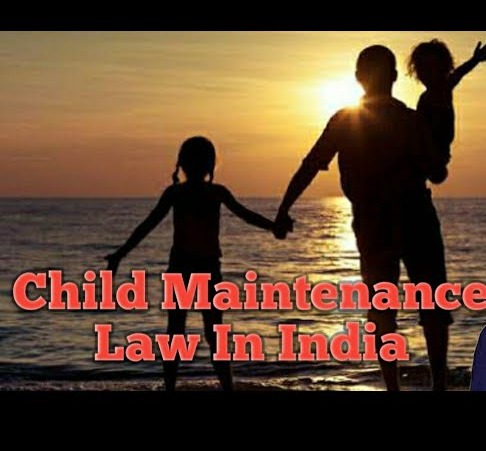@JUDGMENTTAG-ORDER
1. By this writ petition under Articles 226 and 227 of the Constitution, the petitioner has challenged the order passed by the respondent No.1 presumably under Clause 28 of the Central Provinces and Berar Letting of Houses and Rent Control Order. 1949 (hereinafter referred to as the "Rent control Order'') on 31-5-1978. Directing the petitioner to vacate the suit house.
2. The facts lie in a very narrow compass. In 1972, the house in question which is House No. 180/30 in Mudholkar Peth. Amravati town was allotted to a Government allottee v. R. Raut, who was a Government servant serving in the Revenue department. In 1976. V. R. Raut was transferred to chikhalda On the transfer of V. R. Raut by an order dated 9-6-1976 passed under Clause 24A of the Rent Control Order, this very house was allotted to the petitioner G. M. Raut , who happens to be the real nephew of the original allottee v. R. Raut who was transferred to Chikhalda. These facts are not in dispute.
3. It is contended by the petitioner that on transfer of V. R. Raut to chikhalda, his wife and mother, the latter then falling and requiring medical treatment, continued to live in the suit house at Amravati with the nephew, the present petitioner G. M. Raut, v. R. Raut was re-transferred from Chikhalda to Amravati sometime thereafter and began living in the suit house with his family and with the petitioner.
4. On 31-7-1977 one s. M. Joshi respondent No. 2 made a written complaint to the respondent No.,1 that the petitioner G.M. Raut was not living in the house which was allotted to him,. But was living in another House No. 35/175 in Bhaji Bazar area belonging to one Kisan rajaram raut. On being noticed, the petitioner contended that the allegations against him were wrong. He was still living in suit house with his uncle. V.R.Raut and his family and that he was not living in Bhaji Bazar area house with Kisan Rajaram Raut, who again was his another uncle. It appears. In this enquiry the complainant, respondent No. 2 S. M. Joshi examined one witness who stated that the petitioner was living, not in the suit house but in the Bhaji Bazar area and the petitioner himself stated before the respondent No. 1 that he was still living in the suit house. In this state of affairs ,respondent No. 1 came to the conclusion that although the house was allotted to the petitioner, he was not living therein and he had allowed his uncle Kisan Rajaram Raut (N.R.Raut?) without a fresh allotment order in his favour, to live in the suit house and the petitioner himself was living in the Bhaji Bazar are. Therefore, respondent 1 on 31-5-1978 passed the impugned order observing :
"It is therefore, ordered that action to get the house vacated from G. M. Raut be taken as he himself is not residing therein."
5. Apart from the factual dispute as to whether the petitioner is or is not actually residing in the suit house, it would seem to me that the impugned order cannot be sustained. Even were it to be found as a fact that the petitioner was not actually living in the suit house and he was living elsewhere. The allotment in favour of the petitioner under Clause 24A of the Rent control Order could only apply and the tenancy of the petitioner could be said to have been terminated only in case it were proved that the petitioner had been transferred or had been granted leave other than casual leave or that the petitioner had ceased to hold an office of profit under the Union or State Government etc. Since none these contingencies have been either alleged or proved against the petitioner, it cannot be said that the tenancy of the petitioner stands terminated under clause 25 of the rent control Order. The terminology of Clause 24A of the Rent Control Order reveals that allotment in favour of an allottee under that provision merely requires the landlord of the house to let out the same to the allottee. That means a contract of tenancy comes into existence between the allottee and the landlord and in any case in which the allottee thereafter does not require the suit house, either because he has secured alternative accommodation or has left the area for a continuous period of four months and does not reasonably need the house, then it would be open for the landlord to make an application to the Rent controller under Clause 13 (3) *v) of the Rent Controller Order for permission to terminate the tenancy of the allottee-tenant and after obtaining such permission, the landlord could terminate the tenancy of the allotment by a proper and legal quit notice. Unless the landlord in such manner terminates the tenancy of the allottee tenant, the tenancy is not terminated in any other manner, since it has already been observed that it can be terminated only under Clause 25 of the Rent control Order on the happening of the specific contingencies enumerated therein. That is not the case here, So, it is clear, the allotment in favour of the petitioner still subsists, his tenancy with the landlord still subsists and is not terminated and merely because he is not himself staying in the house but is staying with another uncle of his, it does not by itself mean that the tenancy is terminated. Because there is no provision of law under which the tenancy of an allotment stands terminated merely on the happening of such event/. In these circumstance s, it would seem to me that it cannot be said that by reason merely of the fact that the petitioner is not living in the suit house allotted to him, it would not mean that he had committed a contravention of any provision of the rent Control Order , for rectifying which , the House Allotment Officer could act under clause 28 of the Rent Control Order and direct eviction of the petitioner. In this view of the matter, the impugned order cannot be sustained at a.
6. The order passed by the house allotment officer. Amravati dated 31-5- 1978 requiring the petitioner to vacate the suit house is quashed. Rule absolute.
7. No order as to costs.
8. Petition allowed.

